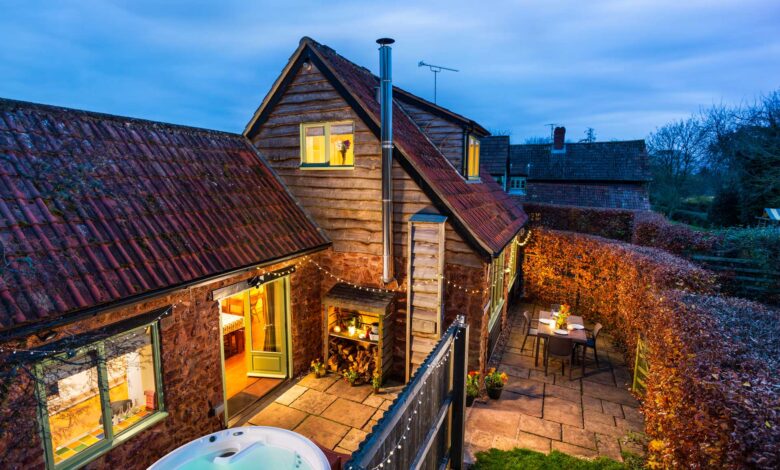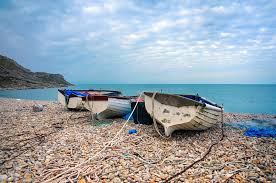Holiday Cottages UK

Holiday Cottages UK: A Simple, Smart Guide for Your Next Break
If you’re dreaming of cosy fires, sea-air mornings, and postcard villages, holiday cottages UK deliver all of that with the comfort of a home from home. This guide keeps things practical and easy to read—what to expect, where to go, how to book, and how to get the best value.
What Is a Holiday Cottage (UK Meaning)?
A holiday cottage in the UK is a privately owned, fully furnished home rented short-term to travellers. Expect a living room, fitted kitchen, bedrooms, and a private bathroom—often with extras like a garden, parking, and Wi-Fi. Unlike hotels, holiday cottages UK stays give you space, privacy, and the freedom to cook, relax, and set your own schedule.
Popular Regions for Holiday Cottages UK
- Cornwall & Devon (South West England): Cliff paths, sandy beaches, surf towns (St Ives, Newquay), and seafood shacks.
- Lake District (Cumbria): Mountain views, lakeside walks, and stone cottages with wood-burners—perfect for hikers.
- Cotswolds (Gloucestershire/Oxfordshire): Honey-stone villages, tearooms, antique shops—classic countryside charm.
- Yorkshire Dales & Moors: Rolling valleys, dry-stone walls, steam railways; great for photography and pub lunches.
- Wales (Pembrokeshire, Snowdonia, Gower): Coastal paths, castles, rugged peaks, and blue-flag beaches.
- Scotland (Highlands, Skye, Cairngorms): Big skies, lochs, wildlife, and dramatic scenery; ideal for road trips.
- Northern Ireland (Causeway Coast, Mournes): Basalt cliffs, heritage sites, and excellent coastal drives.
Types of Holiday Cottages UK Travellers Love
- Coastal cottages: Close to beaches and harbour towns; book early for school holidays.
- Rural retreats: Farm stays and converted barns for starry nights and quiet lanes.
- City pads: Compact mews houses or townhouses near galleries, stadiums, and festivals.
- Luxury escapes: Hot tubs, saunas, cinema rooms—great for anniversaries or group trips.
- Pet-friendly places: Fenced gardens and nearby trails; check pet rules before booking.
- Accessible stays: Step-free entries, ground-floor bedrooms, and walk-in showers (always read the full access spec).
When to Book & What It Costs
- Peak (July–August & bank holidays): Highest demand and prices; reserve 6–9 months ahead for top holiday cottages UK options.
- Shoulder (May–June, Sept–Oct): Better value, mild weather, fewer crowds—sweet spot for walkers and families with flexible dates.
- Low (Nov–Mar): Cosy fires, Christmas markets, and big savings—check heating and insulation details for winter comfort.
Money-savvy tip: Longer stays (7+ nights) and mid-week check-ins often unlock discounts. Look for refundable policies if plans may change.
Must-Have Amenities Checklist
Before you hit “Book,” confirm:
- Reliable Wi-Fi (especially in rural areas)
- Heating type (central heating, log burner, fuel policy)
- Parking (private space vs. nearby car park)
- Kitchen kit (dishwasher, freezer, coffee maker)
- Laundry (washer/dryer—handy for hikes and beach days)
- Outdoor space (secure garden if bringing pets/children)
- Child items (travel cot, high chair)
- Workspace (desk, extra sockets, good lighting)
- Safety (smoke/CO alarms, clear check-in info)
How to Choose the Right Holiday Cottage (UK Practicalities)
- Map first, listings second: Pin your must-see spots, then filter cottages within a 20–30-minute drive.
- Read the small print: Cleaning fees, pet fees, hot-tub rules, and electricity/heating inclusions.
- Study reviews for patterns: Note mentions of cleanliness, mattress comfort, water pressure, and road noise.
- Check access & transport: Rural lanes can be narrow; confirm public transport or taxi availability if you won’t drive.
- Ask for clarity: Photos of staircases, garden fencing, or workspace can prevent surprises.
Sample 3-Day Itinerary: Coastal Holiday Cottages UK (Cornwall)
- Day 1: Arrive, stock up at a farm shop, sunset walk on the South West Coast Path.
- Day 2: Beach morning (Porthcurno or Gwithian), afternoon gallery time in St Ives, fish-and-chips harbourside.
- Day 3: Explore a tin mine heritage site, cream tea in a village café, slow drive along scenic B-roads.
Sustainable Stays
More holiday cottages UK owners are going eco-friendly: heat-pump systems, EV chargers, recycling stations, and local-produce welcome hampers. Bring refillable bottles, keep heating sensible, and shop local to reduce your footprint.
Common Mistakes to Avoid
- Booking only on photos—always read the full description and house rules.
- Ignoring travel times—coastal and rural drives can be slower than expected.
- Assuming “pet-friendly” equals fully fenced—confirm fence height and gaps.
- Overpacking—most cottages supply basics (linen, towels, starter toiletries), but check the inventory.
Quick Booking Flow
- Shortlist 5–7 holiday cottages UK that truly match your needs.
- Compare total price (nightly rate + fees) and cancellation policy.
- Message the host with any special requests (EV charging, late check-in).
- Book with a clear payment schedule and save directions offline.
FAQs: Holiday Cottages UK
Q: Are holiday cottages UK cheaper than hotels?
Often, yes—especially for families or groups splitting a multi-bedroom cottage and cooking some meals at home.
Q: How far in advance should I book?
For peak summer or iconic spots (Cornwall, Skye, Lake District), 6–9 months ahead. Shoulder season can be 2–4 months.
Q: Do I need a car?
Rural stays are easier with a car. City or seaside towns may work with trains and buses—choose a walkable location.
Q: What about hidden fees?
Look for cleaning, service, pet, and hot-tub fees. Check energy/heating policies in winter.
Bottom line: With a little planning, holiday cottages UK offer space, privacy, and authentic local flavour—ideal for everything from beach breaks to mountain hikes. Map your must-dos, confirm the essentials, and book early for the best stays.




